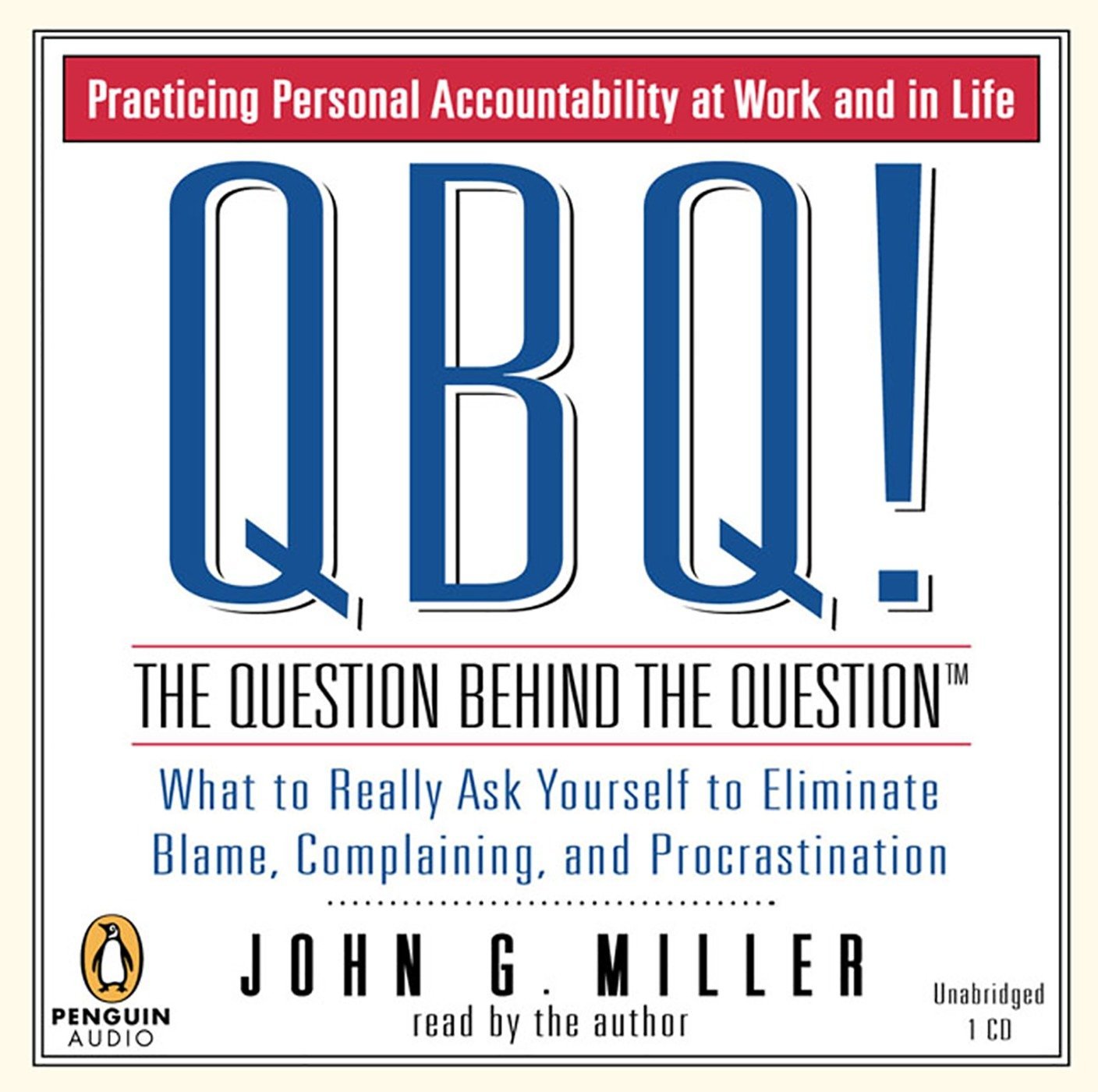About this deal
Afterward, we all moved to another room for the company's annual awards banquet. When dinner was over, the CEO got up and began lauding people for their achievements. One by one they came forward to receive their recognition, a parade of smiling achievers smothered in the applause of their peers. What would you say if I told you I have a friend who never takes out his garbage? Instead he keeps it stored in drawers, plastic containers, and boxes. From time to time he pulls it out, spreads it on the floor, and rolls in it-for hours. I imagine you'd say that purposely collecting, hoarding, and wallowing in garbage is a ridiculous-even insane-thing to do. And I'd agree. Yet we all do it-maybe not literally, like my fictional friend, but in our minds. To better understand the meaning and power of the QBQ, let's start by defining it. Then we will briefly explore key words contained within the definition.
But I didn’t say any of that to her. I simply interrupted with, “Don’t tell me you lost him?!” to which she brightly responded, “Oh no, sir, we didn’t lose him, he was promoted to management.”
Unfortunately, though, they’re often the first thoughts that come to mind. It’s a sad fact that when most of us are faced with a frustration or challenge of some kind, our initial reaction tends to be negative and defensive, and the first questions that occur to us are IQs. I think this is a must have fast read for anyone in management. Some managers don't capitalize on the differences of their teams and instead trying to treat everyone the same and I have found that is a horrible way to operate. Instead it is better to identify what are the strengths and weaknesses of all the team members and help they play to their strengths while developing their weaknesses. Before we go on to the first Advantage Principle, take a moment to review the IQ/QBQ comparisons one by one. Think about how you might make better choices and ask better questions. Consider the impact of eliminating blame, complaining, victim thinking, and procrastination. Imagine the difference the QBQ will make in your life, both at work and at home.
Personal accountability is fine, but this book presents it as a silver bullet for success and doesn't examine the nuances of it.Even though there are risks involved in taking action, the alternative, inaction, is almost never the better choice. Following a presentation I made to a travel company some years ago, a young man named David came up to me and asked, "Mr. Miller, have you written any books?" The first QBQ guideline says all QBQs begin with “What” or “How,” not “Why,”“When,” or “Who.” Take another look at the “Why?” questions at the beginning of the chapter and consider what would happen if we asked these instead:
My thoughts flew fast. NO! You lost my favorite server? You lost a guy who looked at me and asked himself, “What can I do right now to serve my customer?”I just couldn’t believe they had let him get away. In addition, his written comments said, "Consistently stays focused on the problem and how to make things better. Rarely criticizes others' performance, but instead works hard to improve communication within the department, understanding of the situation, and personal skills." I couldn’t believe it. Was that an act of empowerment or what? I’ll bet we can all think of times we would love to look at our “boss” and say, “Get me a Diet Coke!” What a great image. But beyond that, his actions paint a marvelous picture of personal accountability and the Question Behind the Question. We’ll go into the specifics of the QBQ in the chapters to come, but for now let’s take a look at my server’s thinking and the choices he made.While in the airport waiting on my flight I stumbled across this small book and thought it looked like an interesting read. I snagged it from the bookstore and soon was settled into my seat waiting to take off. I started reading it and within an hour had finished it. The QBQ is a tool that helps leaders at all levels practice personal accountability by asking better questions and making better choices in the moment. Huge difference between using personal accountability to solve a problem (which is what the book focuses on) and using personal accountability to initiate a conversation with others about working to solve the problem. Doesn't explain when you'd want to use which approach. While those are questions they really fall into a victimhood stance of things happening to you. There is nothing proactive in those statements, nothing that you are doing to fix these issues. Some better questions would be:
 Great Deal
Great Deal 